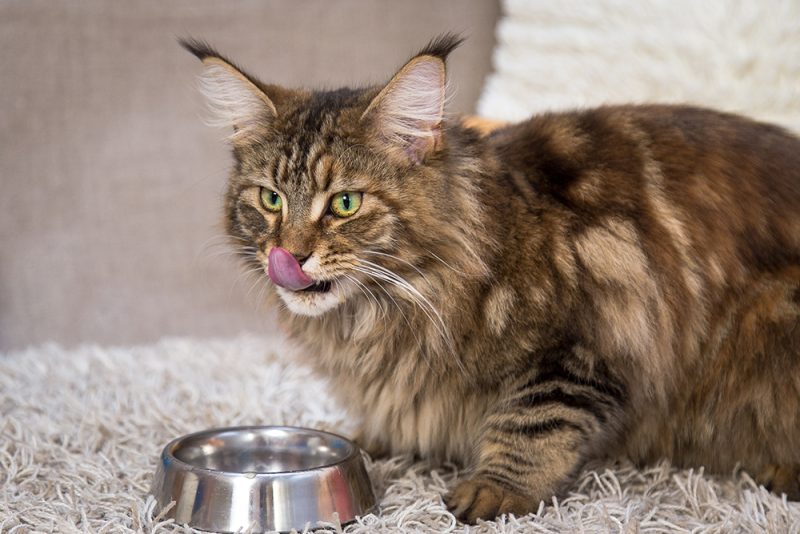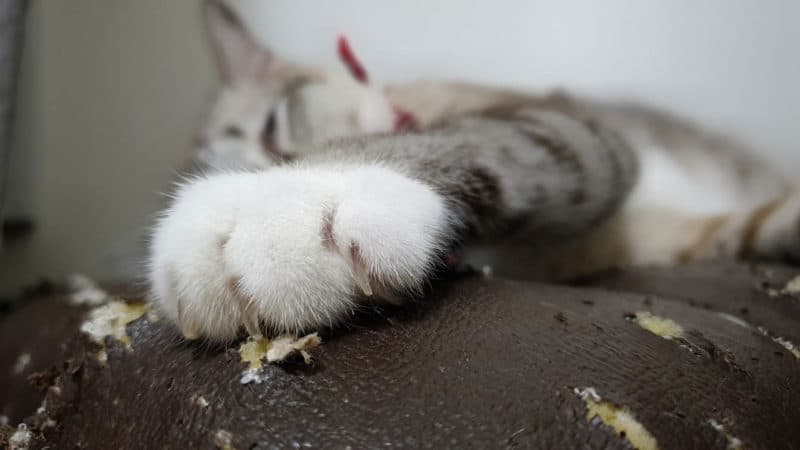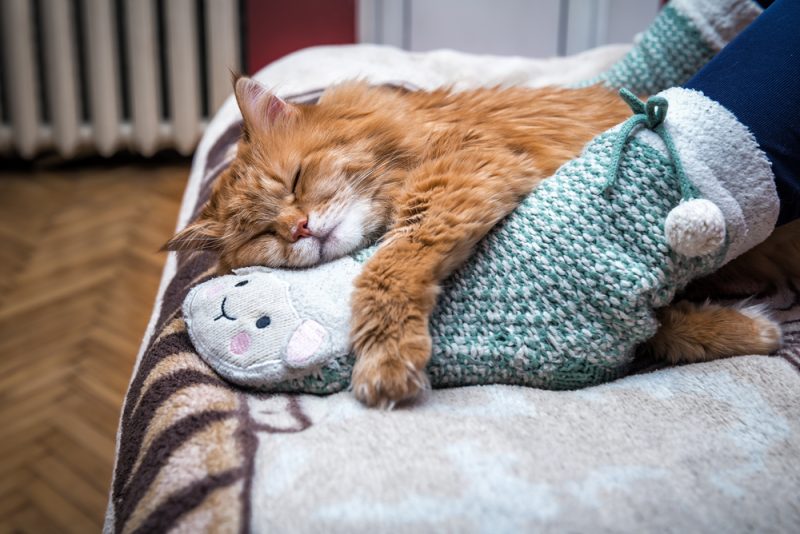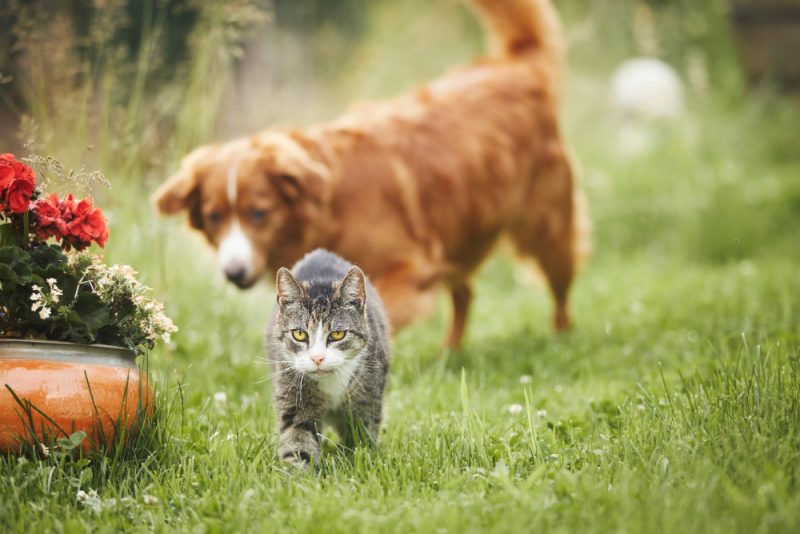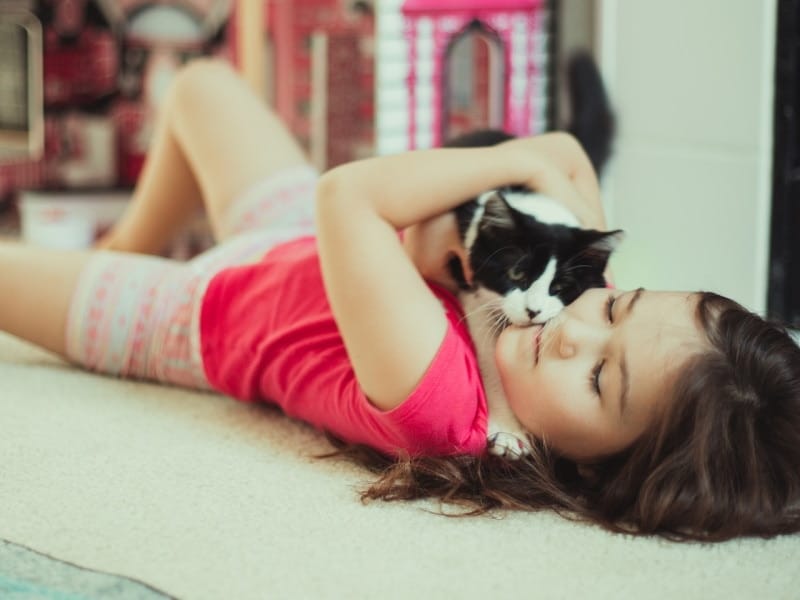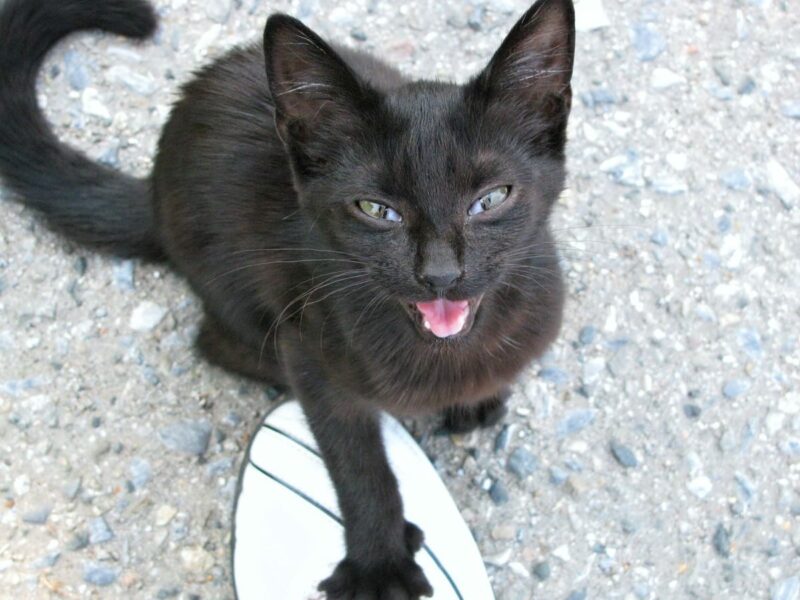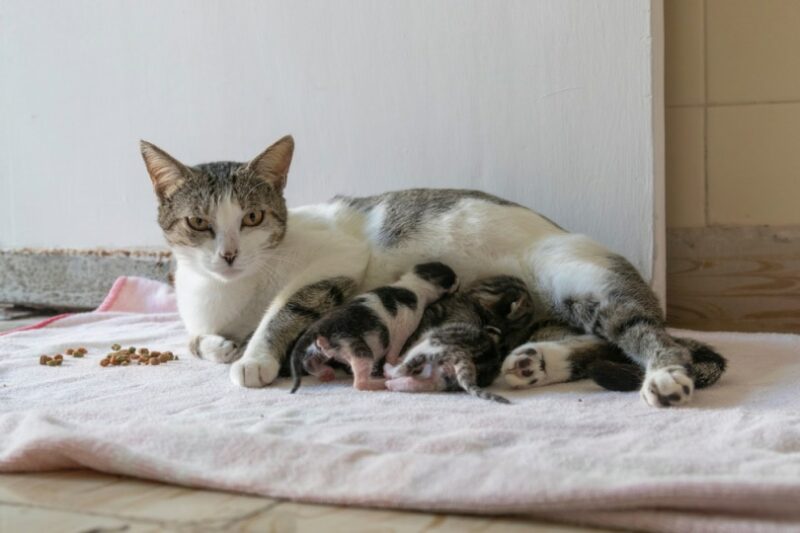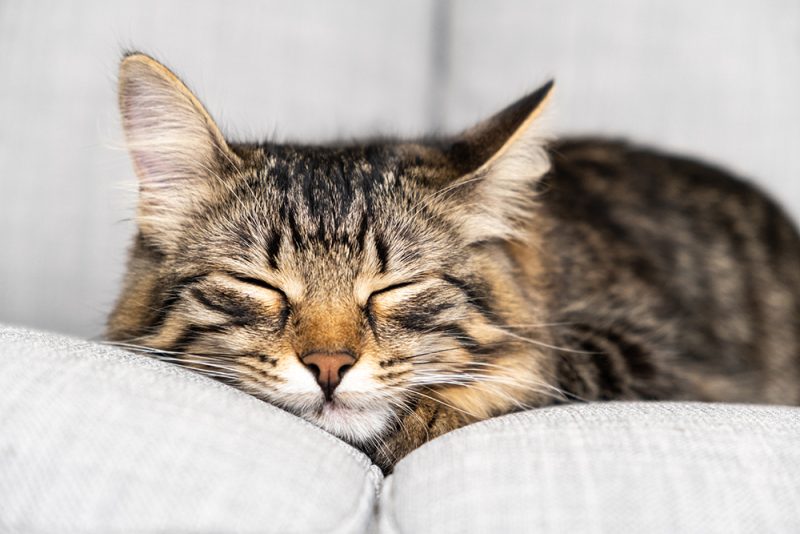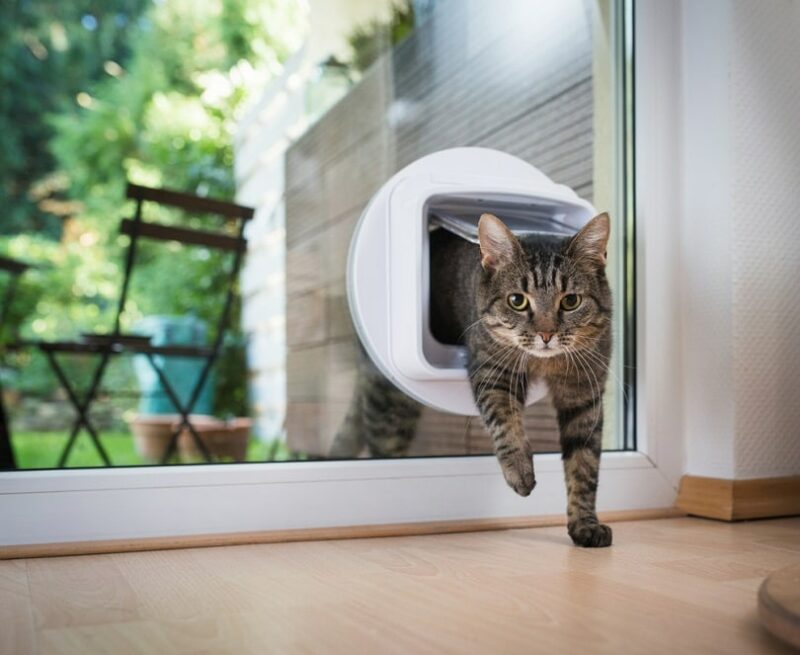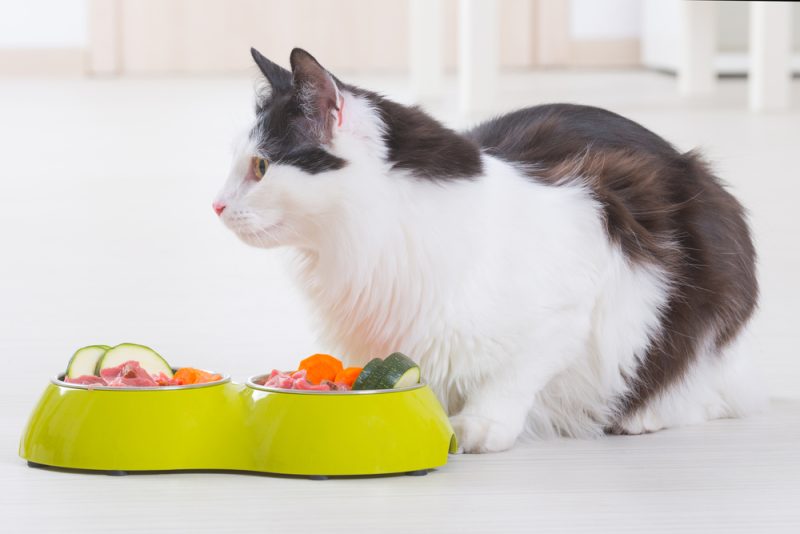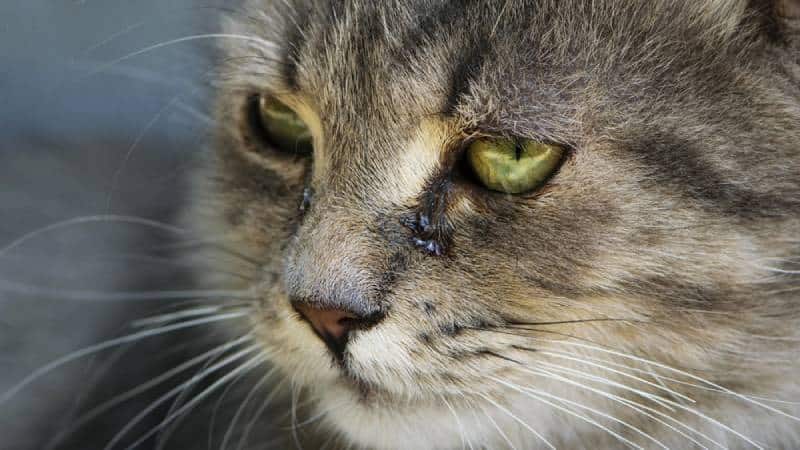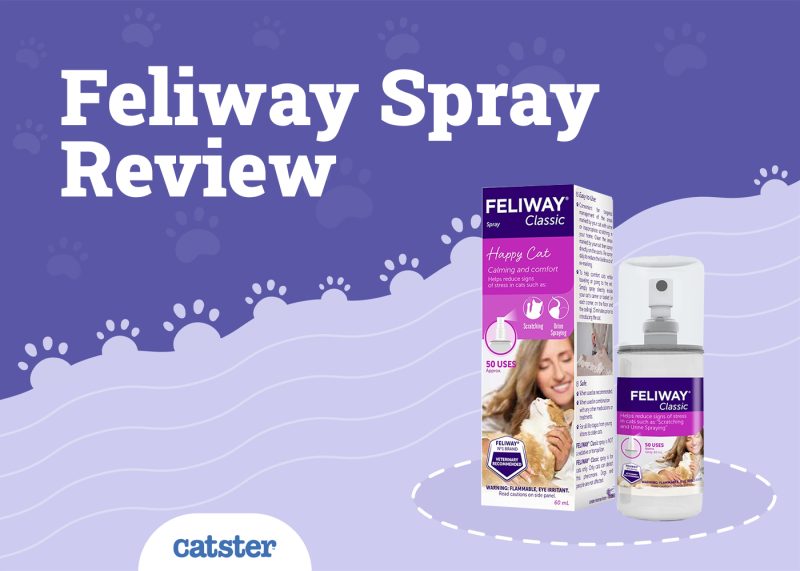When summer hits, it’s not uncommon to have a pitcher of lemonade sitting around with which to cool off. Lemonade makes the perfect hot weather drink: it’s sweet, tart, and, most importantly, cold. But, if you’re a cat owner who enjoys this lemony goodness, there’s always a chance your furry friend could get into it.
Is it okay for cats to drink lemonade? Is it healthy for them? The answer is a resounding no! Lemonade is not a drink your cat should have. If they lick up just a drop or two, they should be reasonably fine, but any more than that can have some serious consequences for your pet.

Cats & Lemons
Of course, the main ingredient in lemonade is lemon, a fruit that is toxic to cats.
Have you ever noticed your cat shying away from citrus scents like lemon? They aren’t usually fond of the smell of citrus and for good reason. The citrus aroma comes from an essential oil called limonene which can cause vomiting, tremors, respiratory distress, and more in cats if inhaled, ingested, or placed on the skin.
There’s also a chemical psoralen that can cause temporary photosensitivity in cats, making their skin more sensitive to ultraviolet radiation. That means if your feline friend ingests something with lemon then goes out into the sun, they run the risk of getting burned.
So, it’s not only bad for your cat to consume lemons, but it’s also bad for them to inhale a lot of it or use body and skin products containing it.
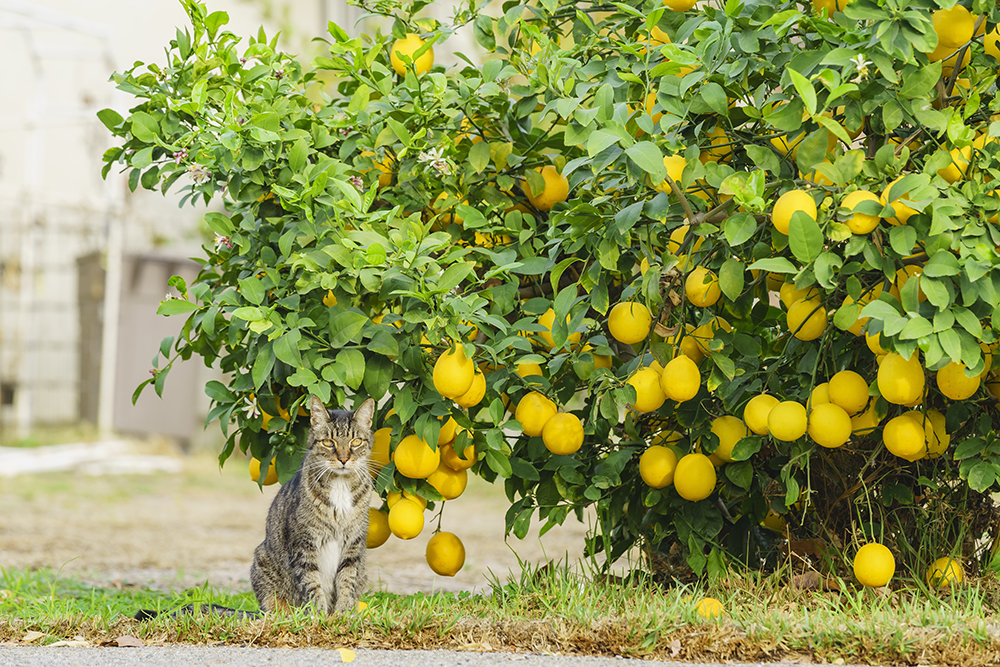
What Happens If My Cat Ingests Something with Lemon?
Even just a tiny bit of lemon being ingested by your kitty can cause stomach upset due to the high acidity of lemons. And if they eat a lot, it could result in too much acid in your cat’s body, leading to metabolic acidosis.
Symptoms of lemon poisoning can vary, depending on the amount of citrus your cat has had. However, these symptoms include:
- Lethargy
- Vomiting
- Diarrhea
- Tremors
- Drooling
- Rashes
- Death
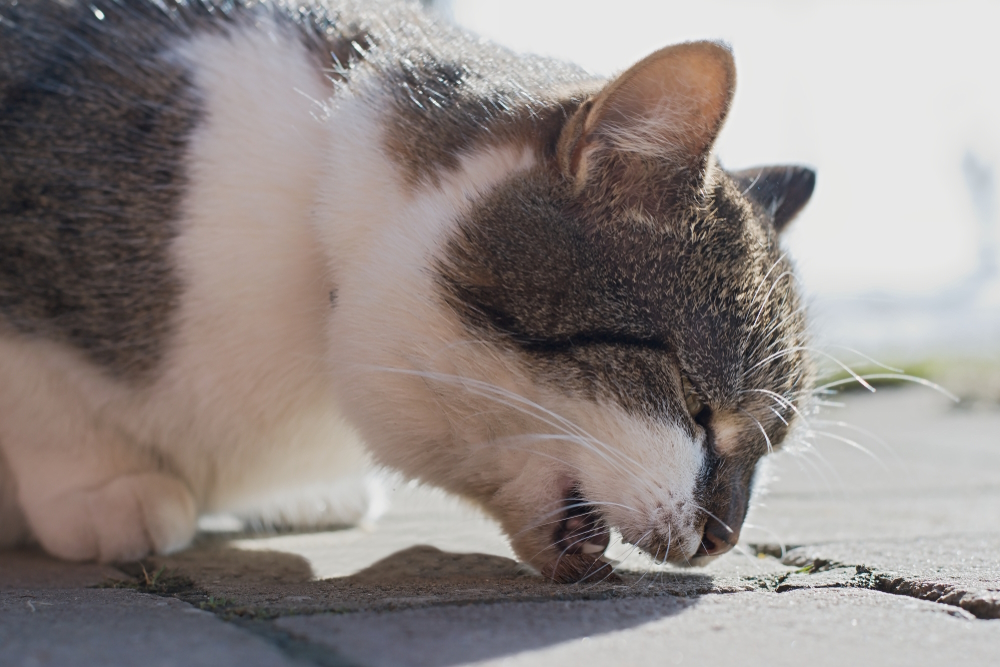

Other Risks of Lemonade
Now that you know just how dangerous lemons are to your favorite feline, let’s look at the other health risks of your cat consuming lemonade. Yes, as if the lemon poisoning wasn’t enough, there are more negatives to cats drinking lemonade!
Sugar Content
Let’s face it—lemonade has an incredible amount of sugar in it to cut the sourness of the lemon. And while sugar isn’t toxic to your kitty, it isn’t good for them in high doses either. Besides the fact that cats’ systems can’t digest sugar as well as ours, sugar can affect their bodies similarly to how it affects human bodies. Besides the digestion issues, which could lead to vomiting and stomach discomfort, too much sugar can lead to problems like diabetes and dental issues.
Acidity
We’ve already mentioned the high acidity in lemons and the risk of metabolic acidosis if your cat’s body has too much acid in it. But the high acidity in lemons could also cause acid reflux in your cat, just like it could with you. This acidity could also irritate any sores or cuts they might have in or around the mouth.
Seek veterinary advice if you’re concerned about your pet’s well-being.
If you need to speak with a vet but can't get to one, head over to PangoVet. It's an online service where you can talk to a vet online and get the advice you need for your pet — all at an affordable price!


Conclusion
While your cat should be okay if they only have a drop or two of lemonade (though this amount may still cause stomach upset), any more than that can be downright dangerous.
With lemons being the main ingredient in lemonade, you run the risk of lemon poisoning, which can lead to vomiting, diarrhea, lethargy, and even death. When it comes to lemons and citrus fruits, in general, your cat should avoid them at all costs.
Other than lemon poisoning, lemonade is also bad for your kitty due to its high sugar content and acidity. Too much sugar for your cat can result in gastrointestinal issues, issues with teeth, and even diabetes. And when it comes to the acidity of lemons, you’re looking at the possibility of acid reflux, irritation around and in the mouth, as well as metabolic acidosis.
It turns out lemonade and cats are a pretty bad combination! If your cat has gotten into lemonade, keep an eye on them for the next few hours to see how they react (especially if you aren’t sure how much they had). If they simply have a bit of stomach upset, it should run its course. But if any other symptoms show up, it’s recommended you get your pet to the vet as soon as possible for treatment.
Featured Image Credit: JeniFoto, Shutterstock



